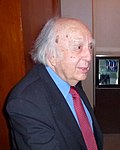| |||||||||||||||||||||||||||||||||||||||||||||||||||||||||||||||||||||||||||
35 of 50 seats in the House of Representatives | |||||||||||||||||||||||||||||||||||||||||||||||||||||||||||||||||||||||||||
|---|---|---|---|---|---|---|---|---|---|---|---|---|---|---|---|---|---|---|---|---|---|---|---|---|---|---|---|---|---|---|---|---|---|---|---|---|---|---|---|---|---|---|---|---|---|---|---|---|---|---|---|---|---|---|---|---|---|---|---|---|---|---|---|---|---|---|---|---|---|---|---|---|---|---|---|
| Turnout | 75.85% ( | ||||||||||||||||||||||||||||||||||||||||||||||||||||||||||||||||||||||||||
| |||||||||||||||||||||||||||||||||||||||||||||||||||||||||||||||||||||||||||
| |||||||||||||||||||||||||||||||||||||||||||||||||||||||||||||||||||||||||||
Parliamentary elections were held in Cyprus on 5 July 1970. [1] Out of the 50 available seats, 35 were filled through elections within the Greek community, while the remaining 15 were designated for the Turkish community. The Turkish community did not take part in this particular election. [2] The result was a victory for Eniaion, which won 15 of the 35 seats despite AKEL receiving a far larger share of the vote.


